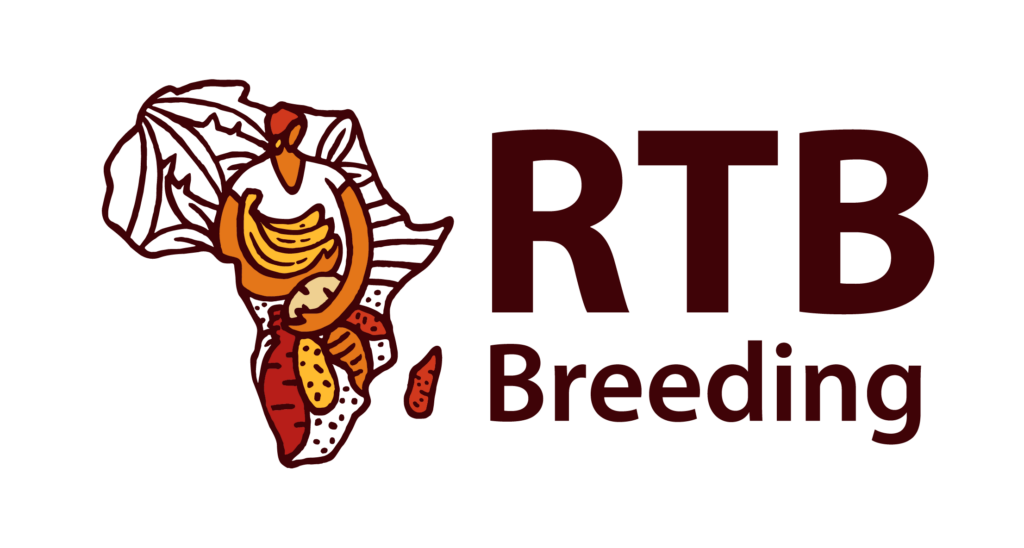Forum Topic: Cassava Transcriptome Research
View topics list |
Add post
View topics list | Add post
Cassava Transcriptome Research
I am a college student and work in plant breeding. I want to research genome-wide analysis of cassava disease-related gene families. Any suggestions?
This topic was started by Alex Steven.
I am a college student and work in plant breeding. I want to research genome-wide analysis of cassava disease-related gene families. Any suggestions?
This topic was started by Alex Steven.
Unveiling the Secrets of Coffee Beans: Exploring Coffee Bean Transcriptome Research
Subtitle: Unraveling the Genetic Mysteries of the Beloved Coffee Bean
Coffee, one of the world's most beloved beverages, has a complex flavor profile that captivates coffee enthusiasts worldwide. Behind this enticing flavor lies a world of genetic intricacies that determine the aroma, taste, and quality of the coffee beans. Thanks to advancements in scientific research, particularly in the field of transcriptomics, we are now able to delve deeper into the genetic makeup of coffee beans and unlock valuable insights into their development, composition, and response to environmental stimuli. In this article, we will explore the fascinating world of coffee bean transcriptome research and its implications for the coffee industry.
Understanding Transcriptomics
Transcriptomics is a branch of molecular biology that focuses on studying the transcriptome, which encompasses all the RNA molecules present in a cell or tissue at a given time. By analyzing the transcriptome, scientists can gain valuable information about gene expression, regulation, and the dynamic processes occurring within a particular organism. In the context of coffee bean research, transcriptomics plays a pivotal role in unraveling the genetic mechanisms that underlie the development and quality of coffee beans.
Coffee Bean Transcriptome Research
Coffee bean transcriptome research involves analyzing the RNA molecules present in coffee beans at different stages of development, from flowering to ripening. By studying the transcriptome, researchers can identify and characterize the genes that are active during these crucial stages and gain insights into their functions and interactions. This research approach provides a comprehensive view of the genetic factors that contribute to the unique qualities of coffee beans, such as aroma, flavor, and caffeine content.
Key Findings and Implications
Coffee bean transcriptome research has yielded numerous fascinating findings that shed light on the genetic basis of coffee bean development and composition. Some key discoveries include:
Identification of Flavor-Related Genes: By analyzing the transcriptome of coffee beans, researchers have identified genes that play a role in the biosynthesis of volatile compounds responsible for coffee's unique flavors. These findings provide valuable insights into the genetic factors that contribute to the diverse flavor profiles found in different coffee varieties(https://roastercoffees.com/).
Understanding Caffeine Biosynthesis: Transcriptome analysis has helped unravel the genetic pathways involved in caffeine biosynthesis in coffee beans. Researchers have identified the genes responsible for key enzymatic steps in caffeine production, offering potential targets for genetic modification to regulate caffeine content in coffee beans.
Studying Stress Response: Coffee plants are exposed to various environmental stresses, such as drought, temperature fluctuations, and pests. Transcriptome research allows scientists to understand the genetic mechanisms that enable coffee plants to respond and adapt to these stress conditions. This knowledge can inform breeding programs aimed at developing more resilient coffee varieties.
Quality Control and Breeding Programs: Coffee bean transcriptome analysis has the potential to revolutionize quality control practices in the coffee industry. By identifying the genes associated with desirable traits, such as cup quality, disease resistance, and yield, researchers can develop molecular markers to assist in breeding programs, enabling the production of improved coffee cultivars.
Future Directions
As coffee bean transcriptome research continues to advance, there are several exciting avenues for exploration. Some potential future directions include:
Comparative Transcriptomics: Comparative analysis of the transcriptomes of different coffee varieties can provide insights into the genetic variations that contribute to variations in flavor, aroma, and quality. This information can guide breeding efforts aimed at developing new coffee cultivars with specific desirable traits.
If you find it difficult to control your caffeine intake or develop withdrawal symptoms, consider contacting a healthcare professional or support group for guidance and assistance. Remember that caffeine tolerance varies from person to person, so it's important to personalize your caffeine intake according to your own needs and health considerations. A caffeine calculator - https://roastercoffees.com/caffeine-calculator/ can be a useful tool for maintaining a balanced and healthy relationship with caffeine.
Understanding Developmental Processes: Transcriptome analysis at various stages of coffee bean development can help uncover the genetic mechanisms underlying the complex processes of fruit maturation, ripening, and seed development. This knowledge can aid in optimizing cultivation practices and enhancing coffee bean quality.
Exploring Epigenetics: Epigenetic modifications, which affect gene expression without altering the underlying DNA sequence, may play a role in shaping coffee bean characteristics. Investigating the epigenetic factors influencing coffee bean development and flavor could provide a deeper understanding of the complex interactions between genes and the environment.
Integration with Genomic Data: Integrating transcriptome data with genomic information can provide a more comprehensive understanding of coffee bean genetics. This integration allows researchers to identify candidate genes, regulatory elements, and genetic markers that contribute to coffee quality, paving the way for targeted genetic improvement strategies.
Coffee bean transcriptome research represents a powerful tool for unraveling the genetic mysteries of coffee beans. By deciphering the intricate molecular processes that govern coffee bean development, composition, and response to the environment, scientists are equipping the coffee industry with valuable knowledge for breeding programs, quality control, and the development of new coffee varieties. Through continued research and innovation, the insights gained from coffee bean transcriptome studies have the potential to enhance the future of coffee production and delight coffee lovers with even more exceptional coffee experiences.
What Is Macchiato? Get The Mystery - https://roastercoffees.com/macchiato
Subtitle: Unraveling the Genetic Mysteries of the Beloved Coffee Bean
Coffee, one of the world's most beloved beverages, has a complex flavor profile that captivates coffee enthusiasts worldwide. Behind this enticing flavor lies a world of genetic intricacies that determine the aroma, taste, and quality of the coffee beans. Thanks to advancements in scientific research, particularly in the field of transcriptomics, we are now able to delve deeper into the genetic makeup of coffee beans and unlock valuable insights into their development, composition, and response to environmental stimuli. In this article, we will explore the fascinating world of coffee bean transcriptome research and its implications for the coffee industry.
Understanding Transcriptomics
Transcriptomics is a branch of molecular biology that focuses on studying the transcriptome, which encompasses all the RNA molecules present in a cell or tissue at a given time. By analyzing the transcriptome, scientists can gain valuable information about gene expression, regulation, and the dynamic processes occurring within a particular organism. In the context of coffee bean research, transcriptomics plays a pivotal role in unraveling the genetic mechanisms that underlie the development and quality of coffee beans.
Coffee Bean Transcriptome Research
Coffee bean transcriptome research involves analyzing the RNA molecules present in coffee beans at different stages of development, from flowering to ripening. By studying the transcriptome, researchers can identify and characterize the genes that are active during these crucial stages and gain insights into their functions and interactions. This research approach provides a comprehensive view of the genetic factors that contribute to the unique qualities of coffee beans, such as aroma, flavor, and caffeine content.
Key Findings and Implications
Coffee bean transcriptome research has yielded numerous fascinating findings that shed light on the genetic basis of coffee bean development and composition. Some key discoveries include:
Identification of Flavor-Related Genes: By analyzing the transcriptome of coffee beans, researchers have identified genes that play a role in the biosynthesis of volatile compounds responsible for coffee's unique flavors. These findings provide valuable insights into the genetic factors that contribute to the diverse flavor profiles found in different coffee varieties(https://roastercoffees.com/).
Understanding Caffeine Biosynthesis: Transcriptome analysis has helped unravel the genetic pathways involved in caffeine biosynthesis in coffee beans. Researchers have identified the genes responsible for key enzymatic steps in caffeine production, offering potential targets for genetic modification to regulate caffeine content in coffee beans.
Studying Stress Response: Coffee plants are exposed to various environmental stresses, such as drought, temperature fluctuations, and pests. Transcriptome research allows scientists to understand the genetic mechanisms that enable coffee plants to respond and adapt to these stress conditions. This knowledge can inform breeding programs aimed at developing more resilient coffee varieties.
Quality Control and Breeding Programs: Coffee bean transcriptome analysis has the potential to revolutionize quality control practices in the coffee industry. By identifying the genes associated with desirable traits, such as cup quality, disease resistance, and yield, researchers can develop molecular markers to assist in breeding programs, enabling the production of improved coffee cultivars.
Future Directions
As coffee bean transcriptome research continues to advance, there are several exciting avenues for exploration. Some potential future directions include:
Comparative Transcriptomics: Comparative analysis of the transcriptomes of different coffee varieties can provide insights into the genetic variations that contribute to variations in flavor, aroma, and quality. This information can guide breeding efforts aimed at developing new coffee cultivars with specific desirable traits.
If you find it difficult to control your caffeine intake or develop withdrawal symptoms, consider contacting a healthcare professional or support group for guidance and assistance. Remember that caffeine tolerance varies from person to person, so it's important to personalize your caffeine intake according to your own needs and health considerations. A caffeine calculator - https://roastercoffees.com/caffeine-calculator/ can be a useful tool for maintaining a balanced and healthy relationship with caffeine.
Understanding Developmental Processes: Transcriptome analysis at various stages of coffee bean development can help uncover the genetic mechanisms underlying the complex processes of fruit maturation, ripening, and seed development. This knowledge can aid in optimizing cultivation practices and enhancing coffee bean quality.
Exploring Epigenetics: Epigenetic modifications, which affect gene expression without altering the underlying DNA sequence, may play a role in shaping coffee bean characteristics. Investigating the epigenetic factors influencing coffee bean development and flavor could provide a deeper understanding of the complex interactions between genes and the environment.
Integration with Genomic Data: Integrating transcriptome data with genomic information can provide a more comprehensive understanding of coffee bean genetics. This integration allows researchers to identify candidate genes, regulatory elements, and genetic markers that contribute to coffee quality, paving the way for targeted genetic improvement strategies.
Coffee bean transcriptome research represents a powerful tool for unraveling the genetic mysteries of coffee beans. By deciphering the intricate molecular processes that govern coffee bean development, composition, and response to the environment, scientists are equipping the coffee industry with valuable knowledge for breeding programs, quality control, and the development of new coffee varieties. Through continued research and innovation, the insights gained from coffee bean transcriptome studies have the potential to enhance the future of coffee production and delight coffee lovers with even more exceptional coffee experiences.
What Is Macchiato? Get The Mystery - https://roastercoffees.com/macchiato
View topics list | Add post




